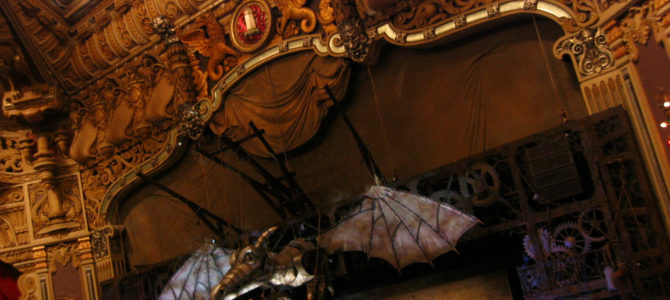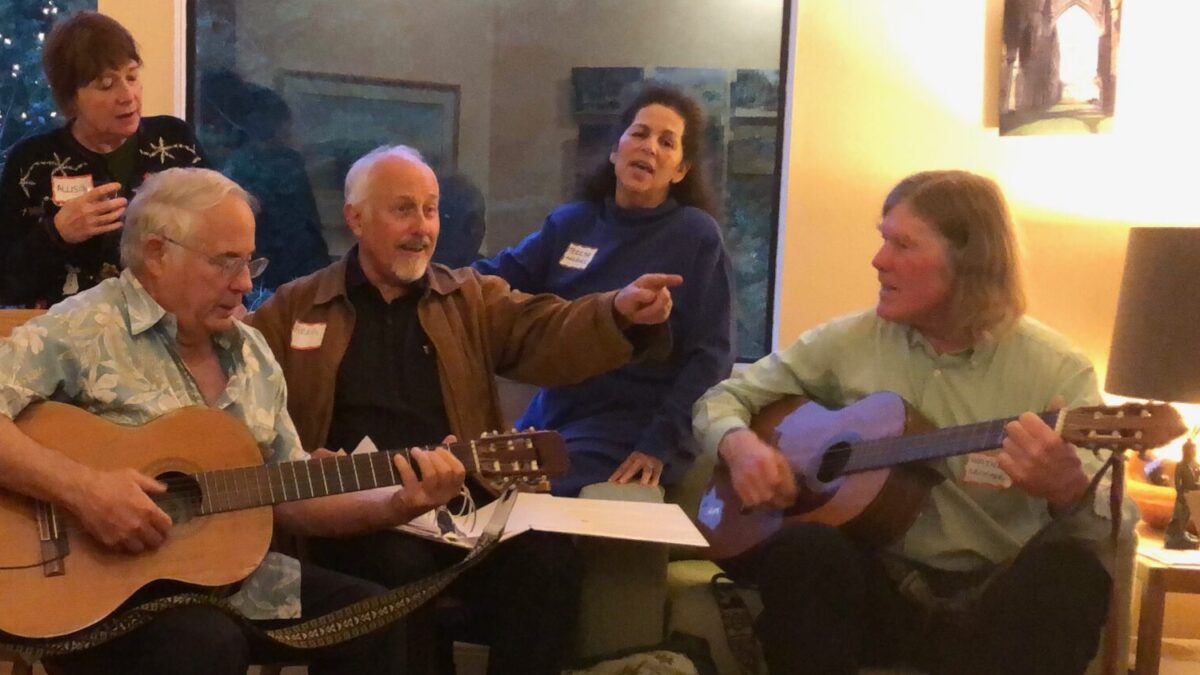
Spoiler alert: discusses plot points from a 14-year-old musical.
It can be challenging being a conservative fan of Broadway musicals. When I was growing up on Long Island in the ’80s and ’90s, I would regularly go to see Broadway shows with my family or on school trips. Perhaps it was just my perception, but it seemed to me that the vast majority of shows had broad appeal, despite the proposition of heading in to the gritty city—Times Square hadn’t been cleaned up yet.
Despite the seedy surroundings of Midtown Manhattan, you could take the family to most of the shows. Back then, we would snicker at well-placed expletives in shows like “Les Miserables.” Today, Times Square is safer than ever (barring the occasional aggressive Elmo), but you really have to do your homework to know which shows you can take your kids to. Generally speaking, unless the show is a classic revival (like “Fiddler on the Roof” or “West Side Story”); has been adapted by Disney (“Lion King,” “Aladdin,” etc.); or it’s explicitly marketed to kids (like “Matilda”), you’re probably better off staying home.
Broadway shows these days seem to revel in saturating in swearwords or rubbing the audience’s faces in the latest feminist or LGBT agenda item. (And yes, I realize that people like Bob Fosse were pushing the envelope in the ’70s, and shows like “Oh Calcutta” existed in the ’80s.) It’s enough to make you give up on professional live theater.
That brings me to “Wicked.” Here is your show of shows. It’s a blockbuster that has been continually running on Broadway since it opened 14 years ago. It’s smashed box office records many times over at its home at the Gershwin Theater. It’s broken box office records with its touring productions. It confirmed Broadway superstar status for its stars, Kristin Chenowith and Idina Menzel. Somehow I missed it. I think I just wasn’t convinced by the hype, and I had heard it got political, so I had stayed away.
A Reimagining of ‘The Wizard of Oz’
In Philadelphia, where I now live, touring productions of “Wicked” have visited five times over the years, and they have generally stayed for week-long runs. I always had something better to do. The most recent touring production took up a residence during the entire month of August at the Academy of Music, and I figured this was finally the time to see it. And I loved it!
In case you’re still with me, and you don’t know what “Wicked” is all about, it’s a musical based on the novel of the same name. It reimagines the novel and movie “The Wizard of Oz.” “Wicked” takes place before, during, and after the events of “Wizard.” In this reimagining, Glinda and Elphaba, the Wicked Witch of the West, are friends who met as roommates in college in Oz. “Wicked” purports to give us the back story behind the flying monkeys, the Scarecrow, the Tin Man, and the Cowardly Lion. It turns out that Elphaba didn’t really melt after Dorothy threw that bucket of water.
I was quite suspicious of it going in, because I sensed, from reading reviews, that it had a political slant. And the first few moments of the performance were a bit uncomfortable. However, I soon realized that there is a blue-pill way of viewing “Wicked.” That’s what most people will come away with, and probably what the creators of the musical intended. Broadway, and the theater community in general, is notoriously friendly to progressive, feminist, LGBT themes. However, there is a red-pill way to view “Wicked,” and once you start viewing it this way, you can’t un-see it.
All Their Points Turn Back on Themselves
Consider the character of Elphaba. She has green skin, and once she reaches college, is constantly made the butt of jokes throughout the show. She’s graceless and outspoken, and becomes an animal rights activist. She can be thus seen as a stand-in for whatever group of people are being victimized, bullied, and shamed—LGBT, overweight, or racial or religious minorities. However, that reading of Elphaba’s character isn’t mandatory. Who is being shamed and bullied in the public square these days by cultural gatekeepers?
Another example comes later in act one, when a history professor in the musical is dismissed from his job and arrested. These days, who is being driven from their jobs? Certainly not progressives. They’re running the show. People losing their jobs due to conscience issues are people who contribute to the wrong political campaigns (Brendan Eich) or write memos questioning ideological echo chambers (James Damore). People are losing their bakeries and flower shops due to conscience issues. And one of the authorities in the musical who is arresting that history professor explicitly claims to be on the side of progress! The kicker is that as the professor is being dragged away, he yells out, “You’re not being told the whole truth!”
One of the antagonists of the musical, Madame Morrible, becomes a press secretary for the Wizard of Oz, who is responsible for churning out fake news in the vein of CNN! At that point, I really started wondering if this is a conservative-friendly musical in disguise. So many of its themes are actually conservative themes.
For example, the progressives in the musical are busy trying to silence voices and reduce controversies to black and white Manichean categories. In the real world, conservatives these days are the ones who realize that people are complex, and evil resides in every heart, which is why government should be limited. It’s conservatives and libertarians who are defending the classically liberal right to free speech. What do you hear from illiberal leftists these days? Not “I disagree with what you say but will defend to the death your right to say it,” but “Shut up, bigot!”
Who in the real world is dividing up the world into Manichean categories? It seems to me it is the illiberal left that is interested in eliminating any hint of nuance in public life. It is the illiberal left that attacks even its purported allies in classical liberal circles for not being sufficiently ideologically pure. By contrast, “Wicked” recognizes that life and motivations are messy. “Wicked” turns the uninformed masses into an antagonist thatis easily whipped into a frenzy. But they don’t have all the facts. The audience is given all the facts and asked to make a moral choice: is Elphaba really as “wicked” as everyone says? Here, for certain, is some red-pilling.
Generally speaking, works of art should be apolitical mirrors that show us distilled deeper truth than we usually see in daily life. So it is with “Wicked.” For the moment, “Wicked” has renewed my hope that conservatives can still enjoy theater.









